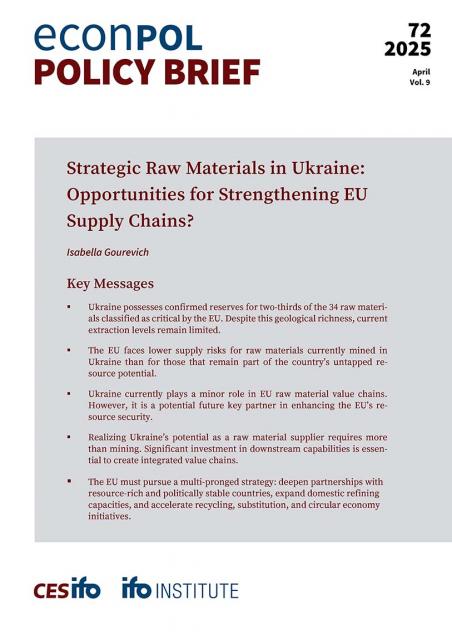News Archive

Event | 10 July | Tax Incentives for Research and Development: Is There an Optimal Policy Mix?
|
EconPol Event
| News
Using the tax system to support research and development has become a very popular policy tool. Many countries are implementing incentives such as tax credits, patent boxes and direct subsidies to stimulate new R&D. But is there really a causal relationship between these policies and the R&D spending done by the businesses receiving the incentives? And if so, is this R&D productive, and does it have an impact on the wider economy?

European Structural and Investment Funds and Regional Convergence: The Impact of Public Deficit in Beta-Convergence
|
Working Paper
| News
Using realized investment data, this working paper from Carlos San Juan Mesonada and Carlos Sunyer Manteiga (EconPol Europe, Universidad Carlos III de Madrid) empirically assesses the effects of the European Structural and Investment Funds on the regional convergence of income in Spanish regions, comparing the results in terms of real regional convergence. The level of indebtedness in the region has a definite adverse effect on the effectiveness of European projects, and the authors also identify an apparent spillover effect from the funds towards other border regions.

Video | Eurozone After the Coronavirus Pandemic: What are the Likely Scenarios?
|
EconPol Video
| News
The full subtitled video of our third CEPS EconPol lunch debate, with Jennifer Baker, Luigi Bonatti and Daniel Gros, is now available to view online, along with a detailed presentation from Luigi Bonatti. Upcoming papers related to the event will be added to the page when they are published.

The Size of Government
|
Working Paper
| News
What government should do, how it should spend and how far it should intervene in the economy are the issues investigated by António Afonso (EconPol Europe, Universidade de Lisboa; REM/UECE), Ludger Schuknecht (OECD) and Vito Tanzi (International Institute of Public Finance) in this working paper.

Eurozone After the Coronavirus Pandemic: What are the Likely Scenarios?
|
EconPol Event
| News
In the first online version of our series of joint CEPS and EconPol lunch debates, livestreamed online at 12.30 CEST on Friday 5 June, moderator Jennifer Baker (www.BrusselsGeek.com) will ask Luigi Bonatti (EconPol Europe, Università di Trento), Daniel Gros (EconPol Europe, CEPS) and Nicola Rossi (Università degli Studi di Roma) what likely scenarios the Eurozone will face after the coronvirus pandemic.
